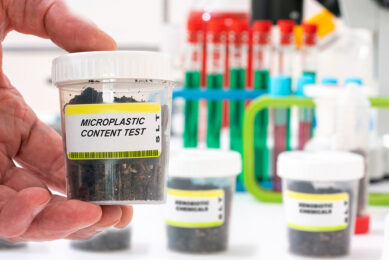Research grant for efficient beef growing project
Animal scientists from several universities, including the University of Nebraska-Lincoln, will collaborate on research aimed to improve beef cattle feed efficiency.
More than 970,000 farms in the United States raise beef cattle, with a $71 billion retail value. However, farmers and feedlot operators spend millions of dollars every year feeding some cattle that don’t grow efficiently.
"Currently, we have no highly effective tools to improve feed efficiency, which can lead to an decrease in greenhouse gas emissions and demand for additional land to produce feed," said Jerry Taylor, Wurdack Chair in animal genomics in the University of Missouri College of Agriculture, Food and Natural Resources, and project director of a $5 million grant to study feed efficiency in cattle.
Breeding not a good tool
"Historically, the only way we have improved the efficiency of cattle growth was by selectively breeding cattle that grew fast. While this reduced the time it took to bring an animal to market, it did not tackle the fundamental issue of improving the efficiency of converting nutrients from feed into beef. An animal that is efficient in converting nutrients into muscle will grow faster and emit less methane and manure in its lifetime, which also is beneficial for the environment."
With the new grants, Taylor and his colleagues will study the feed efficiency of cattle with several techniques, including using DNA-based models to predict genetic merit for feed efficiency.
Gene mapping
During the study, the researchers will genotype, or map the genes, of 8,000 cattle and identify how genetic differences affect feed intake and efficiency.
The researchers also will identify the specific bacteria and microbes that reside in the animals’ stomachs. These bacteria and microbes are a key factor in feed efficiency as they assist the animals in digesting the food.
"If we can identify and selectively breed the animals that have the best combination of genes for producing high-quality beef with the least amount of grain, their offspring could reduce environmental impacts and save producers millions of dollars," Taylor said.
Demonstration project
A demonstration project involving several farms and commercial feedlots in the Midwest will evaluate the DNA diagnostics developed from the study to predict the feed efficiency of calves.
Undergraduate and graduate students will be involved in the research to learn about feed efficiency during the five-year projects.
The research teams also will utilize cattle within industry feedlots for research and demonstration projects to show farmers and feedlot producers how to implement procedures and practices that will improve feed efficiency.











